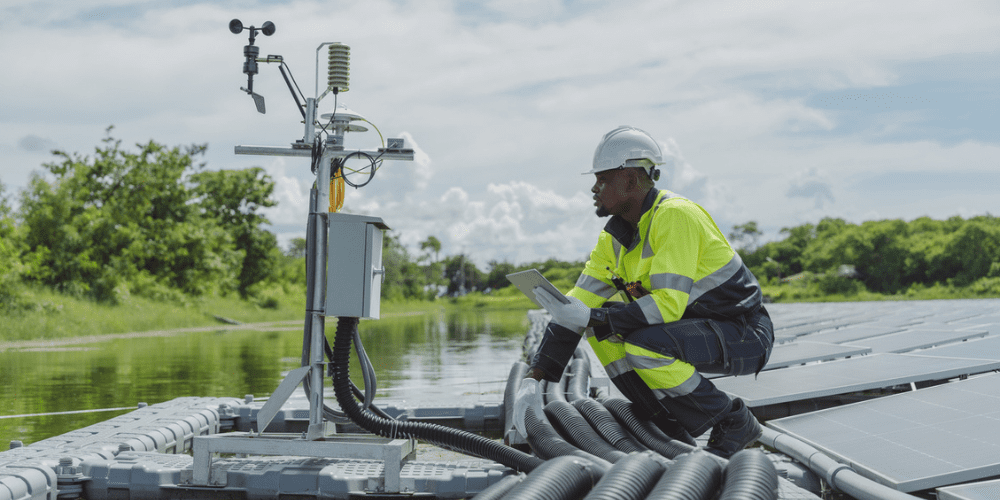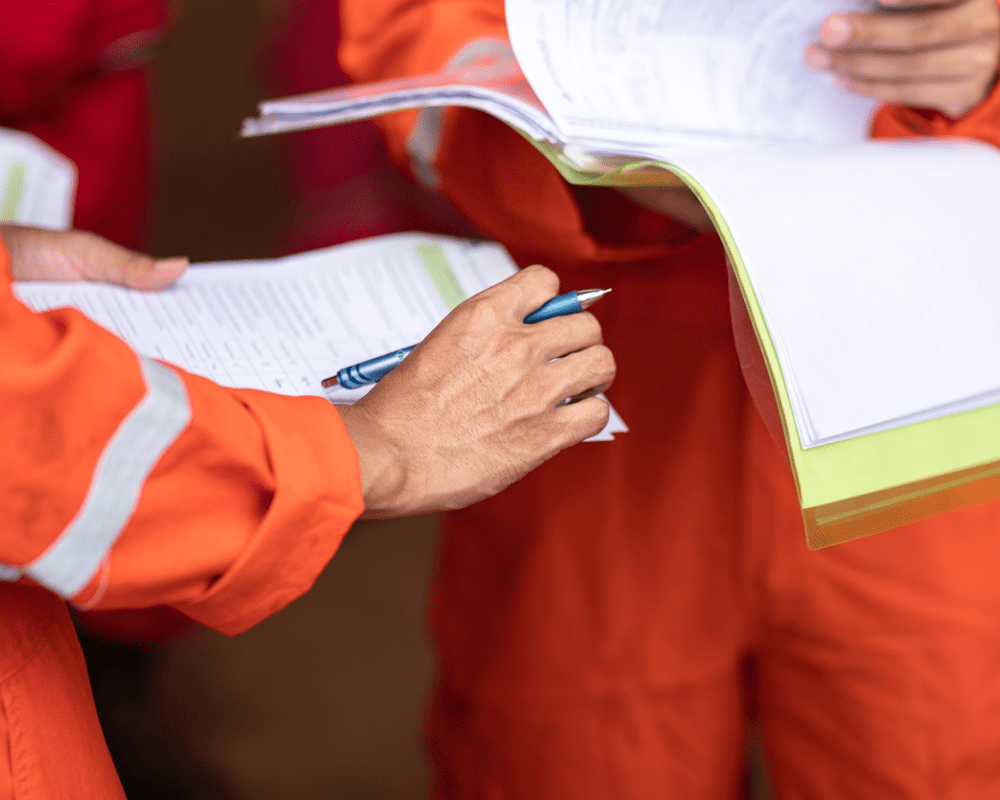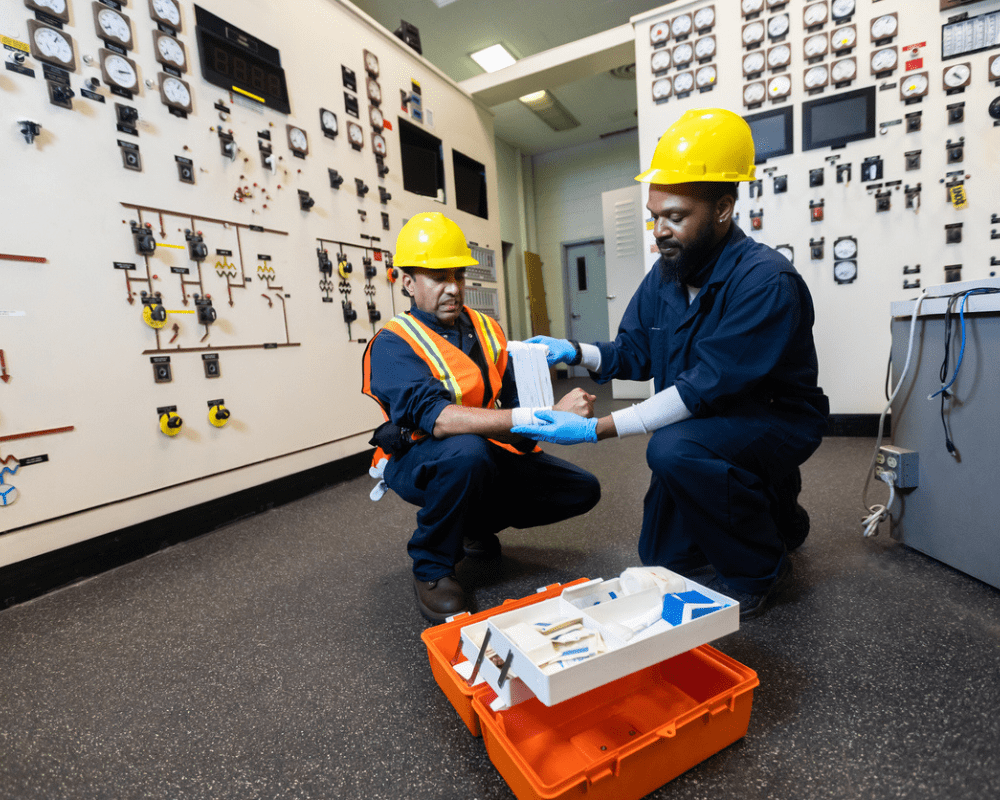If your role involves working on or near the UK’s clean water infrastructure, you may need a National Water Hygiene Card. Often called the Blue Card, this certification is a mandatory requirement for thousands of professionals working on public water networks. At Jason Rowley Ltd, we deliver industry-recognised National Water Hygiene Training to help you meet EUSR standards and stay compliant on site.
What Is the National Water Hygiene Card?
The National Water Hygiene Card proves that you understand the hygiene risks associated with clean water systems and know how to minimise the risk of contamination. Developed in partnership with the UK water industry and managed through the Energy & Utility Skills Register (EUSR), the Blue Card has become a standard requirement across the sector.
The card is issued after successful completion of a short training course and assessment. It is valid for three years, after which you must complete a renewal to continue working on clean water sites.
Why Is Water Hygiene Training Required?
Clean drinking water is a critical public health requirement. Even small lapses in hygiene awareness can result in contamination that risks illness or widespread service disruption. The National Water Hygiene Training Course exists to safeguard this vital supply.
Training ensures workers:
- Understand the risks of working in the clean water network
- Know how human behaviour can introduce contamination
- Recognise their responsibilities under industry and legal regulations (including the Drinking Water Inspectorate)
Who Needs a National Water Hygiene Card?
The National Water Hygiene Card is required by anyone who:
- Enters or works on clean water operational sites, including service reservoirs, pumping stations, water treatment works and boreholes
- Handles restricted operations that may risk contamination of the potable water supply
- Works for UK water companies, their subcontractors, or Self-Lay Organisations (SLOs)
- Installs or maintains pipes, meters or fittings that form part of the clean water network
Common roles include:
- Network operatives
- Meter technicians
- Leakage inspectors
- Engineers and civils contractors
- Water treatment staff
Even if you only visit sites occasionally, you may still be required to show a valid Blue Card as part of your site induction process.
What Does the Water Hygiene Course Cover?
The National Water Hygiene Training covers the core topics that every water industry worker needs to understand:
- Clean water network operations and contamination risks
- Restricted operations and how to handle them safely
- Key hygiene behaviours for personnel
- Public health risks associated with the water supply
- Legal and regulatory frameworks, including responsibilities under national guidelines
The course is followed by a short multiple-choice assessment, and successful candidates are registered with EUSR and issued a digital and physical Blue Card.
Do Other Safety Courses Cover This Requirement?
No. General health and safety training such as CSCS or SHEA does not replace the need for a valid National Water Hygiene Card. While those qualifications are often required alongside the Blue Card, they serve different purposes.
The National Water Hygiene Scheme is scheme-specific, designed solely to address the risks related to clean water operations. Employers and site managers will expect to see proof of EUSR registration before allowing access to relevant work areas.
How Long Does the Card Last and How Do I Renew It?
Your National Water Hygiene Card remains valid for three years. After this period, your EUSR registration will expire and you will no longer meet the entry requirements for clean water network sites.
To renew your certification, you must:
- Re-take the water hygiene training course
- Complete the updated assessment
- Ensure your details are correctly maintained on the EUSR system
Renewal ensures you stay up to date with any changes in hygiene guidance, regulatory frameworks or industry expectations.
What Happens If I Don’t Hold a Valid Blue Card?
Without a valid National Water Hygiene Card:
- You may be refused access to operational sites or service contracts
- Your work may be delayed while you wait for training
- You could be putting the clean water supply at risk through lack of compliance
- Your employer may be in breach of contract if you operate without appropriate certification
Holding a current Blue Card is not optional, it’s an essential part of operating responsibly in the water sector.
How to Get Started with Water Hygiene Training
At Jason Rowley Ltd, we offer National Water Hygiene Training in a clear, accessible format. Whether you’re an individual needing quick certification or a contractor looking to certify your team, we offer:
- Online or in-person training options
- Flexible scheduling
- Competitive pricing for group bookings
Our training is fully EUSR-approved, and we support you from booking through to assessment and registration.
If your work involves any contact with the clean water network, you need a valid National Water Hygiene Card. This certification proves you understand how to work safely, protect public health, and comply with utility industry standards.
Whether you’re an engineer, site operative or contractor, the Blue Card opens access to essential water industry work and supports your ongoing professional development.
Ready to get started? Book your National Water Hygiene Training or contact us to discuss your requirements.




